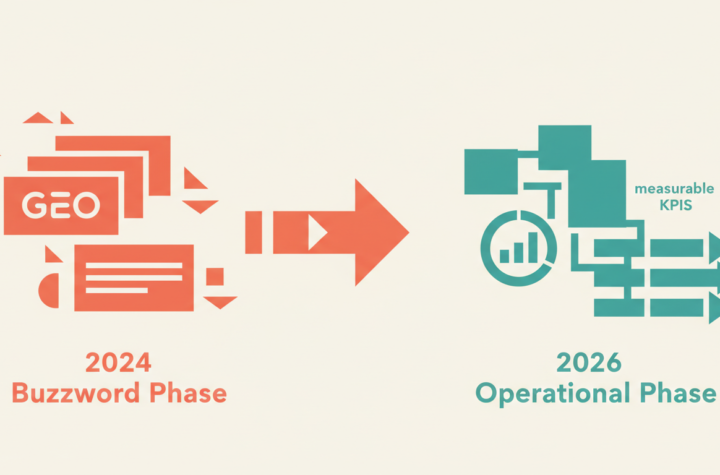
Definition of Aged Domains
Aged domains refer to web addresses that have been in existence for an extended period. These domains typically have a history of content and may have accrued authority over time. It is essential to differentiate aged domains from newly registered ones, as the former often carry more weight in terms of search engine optimization (SEO) value. Aged domains can range from generic premium domains to niche-relevant domains that cater to specific industries or interests.
For SEO purposes, the age of a domain is a crucial factor that search engines consider when ranking websites. However, simply owning an aged domain does not guarantee success in SEO efforts. It is imperative to review past content, inspect domain archives, and analyze the domain history archive to ensure that the domain has maintained a positive reputation. Furthermore, aged domains offer advantages such as pre-established traffic, metric revenue domains, and potential map pack SEO domains. Proper SSL setup domain and anchor text diversification are essential considerations when utilizing aged domains to maximize their benefits and mitigate any potential risks.
Importance of Domain Age in SEO
In the world of search engine optimization (SEO), the age of a domain is often a topic of hot debate. Some argue that domain age plays a significant role in determining a website’s authority and trustworthiness in the eyes of search engines. The notion of purchasing a premium aged domain can be enticing for businesses looking to establish credibility quickly. Niche-relevant domains that have a history of producing quality content can be particularly valuable assets in the SEO landscape.
When considering the importance of domain age in SEO, it is crucial to review past content associated with the domain. By inspecting domain archives, businesses can gain valuable insights into the historical performance and relevance of the website. Moreover, premium domain auctions provide an opportunity to secure highly sought-after domains that may have a strong reputation in the online marketplace. While negotiating domain prices may be a skill in itself, the potential profits that can be reaped from aged domains make the effort worthwhile. It is essential to dispel domain myths and understand the impact that metrics like revenue domains and map pack SEO domains can have on a website’s performance. Additionally, factors such as SSL setup domain and anchor text diversification should not be overlooked when considering the role of domain age in SEO strategies.
Benefits of Using Aged Domains
Acquiring and utilizing aged domains can offer a myriad of advantages in the digital landscape. Premium aged domains, with their established authority and trustworthiness, can provide a significant head start in the competitive realm of online presence. Niche-relevant domains, especially those with a robust domain history archive, can quickly bolster a website’s credibility and visibility, proving to be invaluable assets in the vast sea of websites vying for attention.
When diving into the realm of aged domains, it is crucial to review past content and inspect domain archives meticulously. By delving into the metric revenue domains and map pack SEO domains, a comprehensive understanding of the domain’s potential can be garnered. Furthermore, negotiating domain prices skillfully can lead to profitable investments and enhanced online performance. It is essential to dispel domain myths and understand the nuances of the SEO domain age debate to leverage aged domain profits effectively. Additionally, ensuring SSL setup domain and anchor text diversification are in place can safeguard against blacklist domain warnings and enhance overall search engine rankings.
How to Identify an Aged Domain
To identify an aged domain, start by researching premium aged domains that align with your niche. Niche-relevant domains can offer a head start in SEO efforts, so it’s crucial to review past content and assess the domain’s performance history. One method to find aged domains is by participating in premium domain auctions, where you can potentially secure a high-quality domain. Be cautious of blacklisted domain warnings, and prioritize domains with an SSL setup for improved security and credibility.
Next, when negotiating domain prices, consider factors such as the domain’s age, backlink profile, and overall reputation. Dispelling domain myths is essential in making informed decisions, as misconceptions may hinder your success in leveraging aged domain profits. Delve into the domain’s history archive and inspect domain archives for valuable insights into its performance over time. With the ongoing SEO domain age debate, focusing on metric revenue domains and map pack SEO domains can give you a competitive edge. Additionally, pay attention to anchor text diversification to enhance your domain’s authority and relevance in search engine rankings.
Factors That Impact Domain Age
Examining the factors that influence domain age is crucial for understanding the intricate web of considerations that shape a website’s online presence. One pivotal element is the meticulous curation of premium aged domains, which can significantly impact a site’s SEO ranking. These niche-relevant domains not only carry a historical weight that boosts credibility but also contribute to a strong foundation for organic growth. By delving deeper into the intricacies of these aged domains, webmasters can unlock a treasure trove of opportunities that may have remained untapped.
Moreover, the tug-of-war between the SEO domain age debate necessitates a thorough review of past content and domain history archives. Unraveling the journey of a domain through metric revenue domains and map pack SEO domains sheds light on the evolution of its digital footprint. It is imperative for domain owners to navigate through the complexities of negotiating domain prices while keeping a keen eye on SSL setup for domains and anchor text diversification. By dispelling domain myths and steering clear of blacklist domain warnings, webmasters can harness the potential profits associated with aged domains, thus paving the way for a successful online presence.
Common Misconceptions About Aged Domains
One common misconception about aged domains is that all premium aged domains automatically guarantee high search engine rankings. While it is true that domain age can play a role in SEO, simply owning an aged domain does not guarantee success. It is essential to ensure that the aged domain aligns with your niche and has a strong backlink profile to truly benefit your website’s SEO efforts. In some cases, niche-relevant domains can outperform generic aged domains due to their relevance and authority within a specific industry.
Another misconception is that aged domains are always a safe investment. While aged domains can bring certain advantages, such as existing traffic and backlinks, it is crucial to conduct thorough research before purchasing one. Some aged domains may have a history of spammy backlinks, blacklisting, or other issues that could harm your website’s reputation. By reviewing past content, inspecting domain archives, and analyzing the domain history archive, you can uncover any red flags before finalizing the purchase. It is also recommended to consider factors such as SSL setup, map pack SEO domains, and anchor text diversification when negotiating domain prices to ensure a sound investment and maximize aged domain profits.
Strategies for Acquiring Aged Domains
When venturing into the realm of online business, acquiring a premium aged domain can provide a significant advantage in the competitive landscape. These niche-relevant domains have a history of credibility and authority that can positively impact your website’s SEO performance. To begin the process of acquiring an aged domain, conducting thorough research is imperative. Reviewing past content, inspecting domain archives, and delving into the domain history archive can offer valuable insights into the domain’s reputation and potential.
One effective strategy for finding aged domains is to explore premium domain auctions where a diverse range of aged domains are available for purchase. It is essential to be diligent during this process, ensuring that the SSL setup domain is secure and free from any blacklist domain warnings. Additionally, when negotiating domain prices, it is crucial to understand the metrics that drive revenue in aged domains. By dispelling domain myths and staying informed on the SEO domain age debate, you can make informed decisions that maximize aged domain profits. Furthermore, considering factors such as anchor text diversification and the relevance of the domain to map pack SEO domains can further enhance the value of the acquired aged domain.




More Stories
Buy PBN Links: How to Choose Quality Networks That Deliver Real SEO Results
How Customization Drives Effective Odoo Implementation
Custom Stickers in USA: A Simple Guide to Smart Branding That Truly Works